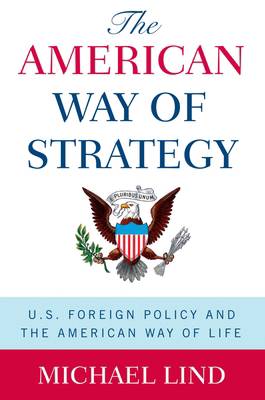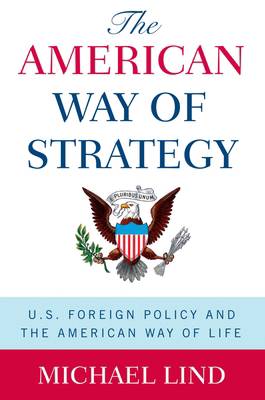
- Afhalen na 1 uur in een winkel met voorraad
- Gratis thuislevering in België vanaf € 30
- Ruim aanbod met 7 miljoen producten
- Afhalen na 1 uur in een winkel met voorraad
- Gratis thuislevering in België vanaf € 30
- Ruim aanbod met 7 miljoen producten
Zoeken
Omschrijving
In The American Way of Strategy, Lind argues that the goal of U.S. foreign policy has always been the preservation of the American way of life--embodied in civilian government, checks and balances, a commercial economy, and individual freedom. Lind describes how successive American statesmen--from George Washington, Thomas Jefferson, and Alexander Hamilton to Franklin Roosevelt, Dwight Eisenhower, and Ronald Reagan--have pursued an American way of strategy that minimizes the dangers of empire and anarchy by two means: liberal internationalism and realism. At its best, the American way of strategy is a well-thought-out and practical guide designed to preserve a peaceful and demilitarized world by preventing an international system dominated by imperial and militarist states and its disruption by anarchy. When American leaders have followed this path, they have led our nation from success to success, and when they have deviated from it, the results have been disastrous. Framed in an engaging historical narrative, the book makes an important contribution to contemporary debates. The American Way of Strategy is certain to change the way that Americans understand U.S. foreign policy.
Specificaties
Betrokkenen
- Auteur(s):
- Uitgeverij:
Inhoud
- Aantal bladzijden:
- 304
- Taal:
- Engels
Eigenschappen
- Productcode (EAN):
- 9780195341416
- Verschijningsdatum:
- 30/07/2008
- Uitvoering:
- Paperback
- Formaat:
- Trade paperback (VS)
- Afmetingen:
- 145 mm x 221 mm
- Gewicht:
- 408 g

Alleen bij Standaard Boekhandel
+ 74 punten op je klantenkaart van Standaard Boekhandel
Beoordelingen
We publiceren alleen reviews die voldoen aan de voorwaarden voor reviews. Bekijk onze voorwaarden voor reviews.











